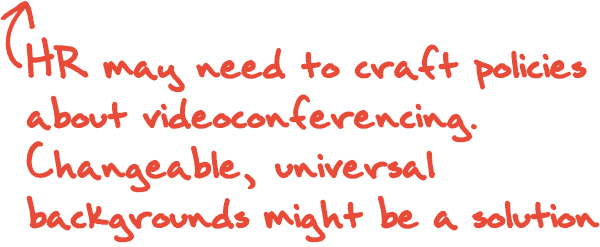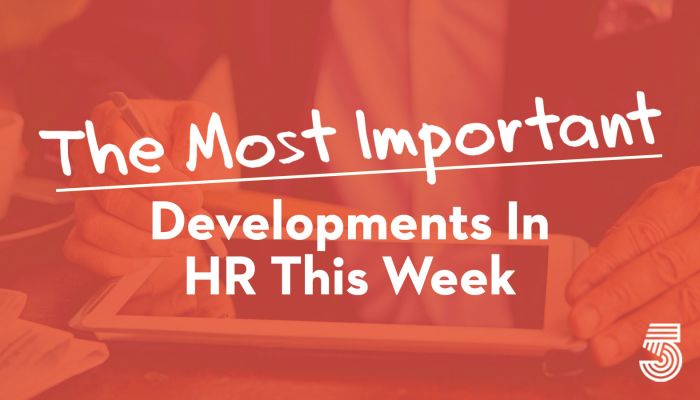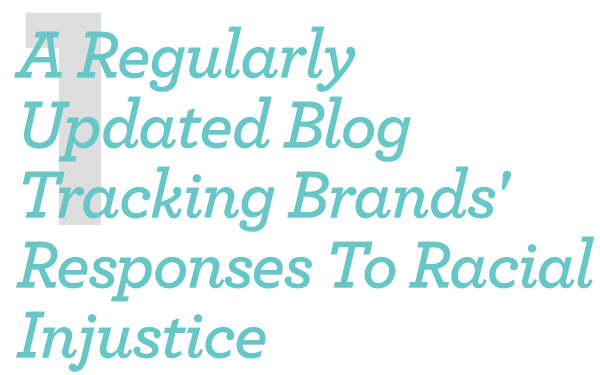
Brands, which often remain silent when it comes to social justice issues, are speaking out, as are ad agencies and marketing professionals. Nike was quick to release a 60-second spot from Wieden+Kennedy Portland, encouraging Americans to not turn their backs on racism, with a twist on its long-used tagline: “For Once, Don’t Do It.” Other brands, including YouTube, the NFL, Disney, Amazon and Netflix, are following suit. Their messages are drawing a mix of praise and criticism. The brands and agencies that include with their statements actions they plan to take to combat racism are generally faring well. Other brands are being accused of commercializing the tragedy. Below is a regularly updated list of responses from brands, media companies and agencies as they take a stand on racism and social injustice. Ad Age
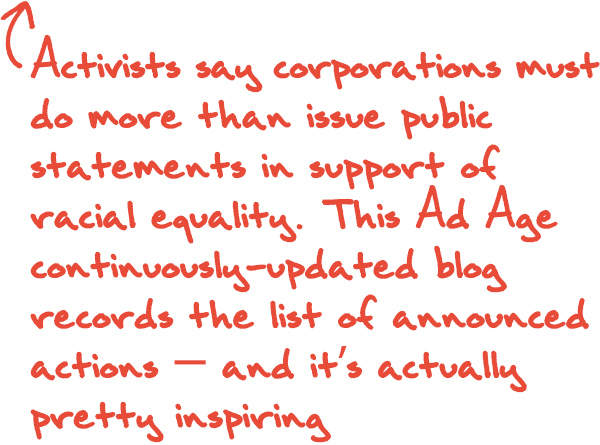
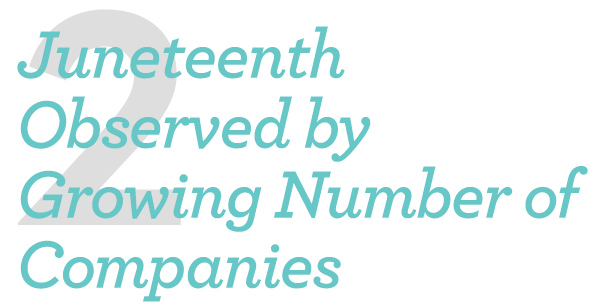
A small but growing number of employers have moved to observe Juneteenth, which commemorates the end of slavery in the U.S., as a company holiday. Plans to observe the June 19 holiday have moved swiftly across corporate America in the weeks following the killing of George Floyd, with businesses ranging from Nike Inc. and Twitter Inc. to law firm Nixon Peabody LLP and Spotify Technology SA, announcing employees would have a paid day off. Target Corp is closing its Minneapolis headquarters Friday and offered time-and-a-half pay for hourly employees who work. Best Buy Co. awarded employees a paid volunteer day that could be used Friday or another day this year and said Juneteenth would be a paid holiday in 2021. WSJ
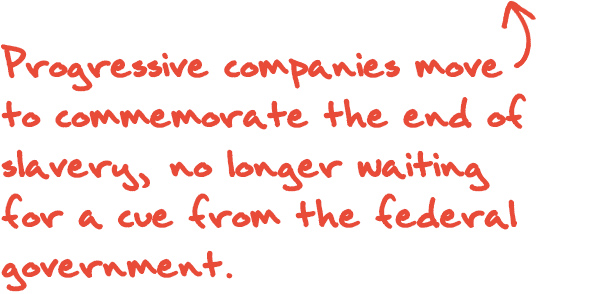
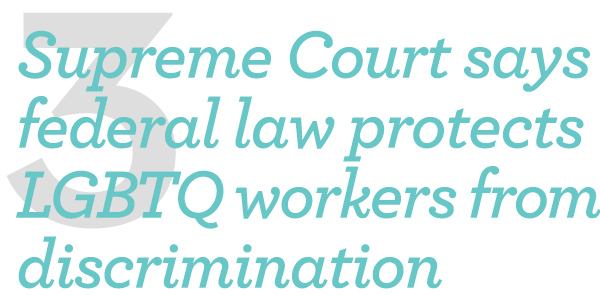
Federal civil rights law protects gay, lesbian, and transgender workers, the Supreme Court ruled Monday. The landmark ruling will extend protections to millions of workers nationwide and is a defeat for the Trump administration, which argued that Title VII of the Civil Rights Act that bars discrimination based on sex did not extend to claims of gender identity and sexual orientation. The 6-3 opinion was written by Justice Neil Gorsuch, President Donald Trump’s first Supreme Court nominee, and joined by Chief Justice John Roberts and the court’s four liberal justices. “An employer who fires an individual for being homosexual or transgender fires that person for traits or actions it would not have questioned in members of a different sex. Sex plays a necessary and undisguisable role in the decision, exactly what Title VII forbids,” Gorsuch wrote. “Today’s decision is one of the court’s most significant rulings ever with respect to the civil rights of gay and transgender individuals,” said Steve Vladeck, CNN Supreme Court analyst and professor at the University of Texas School of Law. CNN

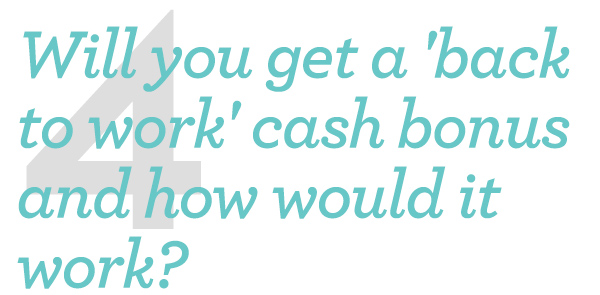
One of the most valuable, and contentious, CARES Act benefits is set to end on July 31st. It’s not the $1,200 stimulus check — it’s the federal $600 weekly unemployment payment. It is set to expire and there isn’t much talk about it being extended while unemployment claims remain near historic highs. In fact, Senate leader Mitch McConnell (R-KY) is adamant that the next coronavirus stimulus bill will not extend the unemployment benefits. Instead, congressional Republicans and the White House favor “back-to-work” bonuses that require earning income. President Trump favors this approach as a way to make America work again. But how would these “back-to-work” bonuses work? Would they apply only to workers who were recently laid off? Or those who took new jobs? What about people who saw their hours reduced or were re-hired before a bonus is put into law? Lawmakers are currently planning the fourth round of stimulus talks in late July. There can be plenty of aisle crossing between Republicans and Democrats to reach a compromise so we’re likely to see more of these as we get deeper into the summer. Forbes

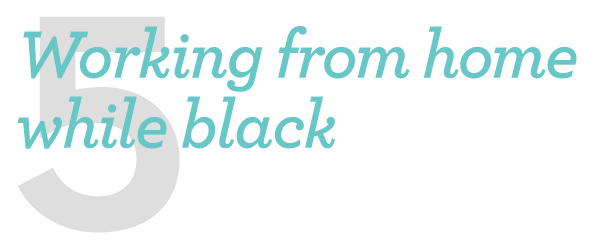
Black employees regularly grapple with how to counteract negative racial stereotypes that undermine their professional images in the office. Work from home arrangements often require people to (virtually) invite coworkers, clients, physicians, students, and professors into their homes, which undermines their ability to exercise agency and control over how they present their identities. Videoconferencing has transformed formerly safe, private spaces for authentic cultural expression into focal points of the public gaze. This means that workers are now sending social class (i.e., size of workspace) and cultural signals (i.e., furnishings, artwork) about their identity affiliations to professional colleagues and clients. Simultaneous broadcasting (i.e., side-by-side video conferencing) showcases a wide range of living spaces, and team members are now able to make explicit and implicit social comparisons between the layout and décor of their “home offices.” This invasion of personal space increases Black worker’s vulnerability to biases and judgments of their professionalism. What can managers and coworkers do to enact inclusive practices in support of Black workers, particularly as working from home may become the norm for the foreseeable future? We offer three key recommendations. Welcome and respect boundaries. Monitor implicit biases. Adjust expectations for participation. HBR
